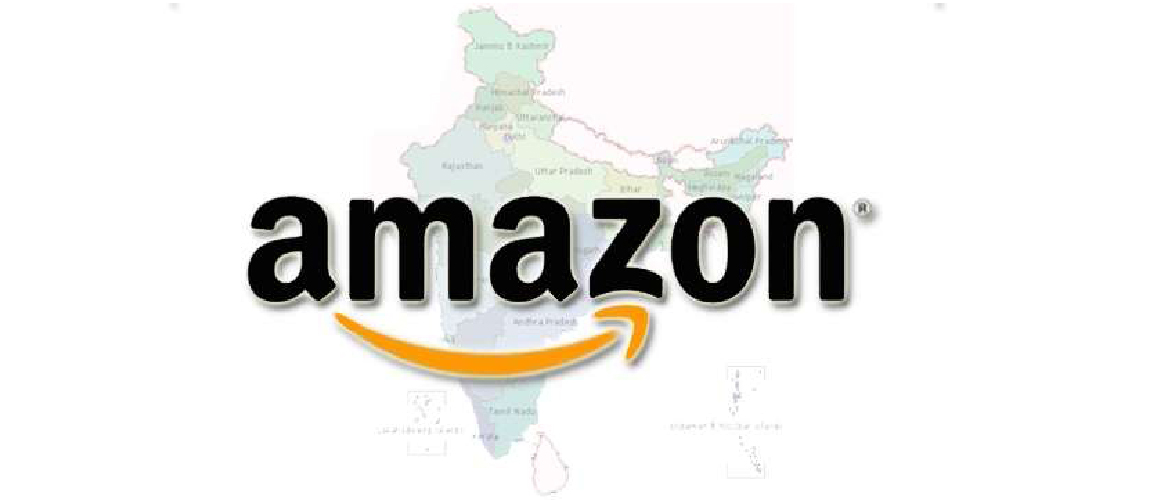Amazon Investment-Largesse or Liability
January 21, 2020 | Expert Insights

Background
Founded by Jeff Bezos in 1994, Amazon ended the fiscal year 2018 with a market value of $ 797 billion compared to Microsoft's $783. For the fiscal year 2018, it reported a gross profit of about $ 10 billion with an annual revenue of $ 233 billion. Amazon has a huge empire encompassing e-commerce, cloud computing, digital streaming, and AI.
Amazon's India operations date back from 2004, but its retail business began only from 2013. With an employee base of more than 60,000, it was reported to have already invested $5.5 billion in the Indian economy. In 2019, the company opened its biggest office in the world in Hyderabad to house more than 15000 employees. Despite the surge in investment and growth, Amazon wholesale India continued to operate at a loss last year, reporting an 8% decline in revenue and losses of Rs 5,685 crore.
Amazon-India is expected to have a market share of 35% in e-commerce by 2023. Jeff Bezos, during his recent visit, laid out plans for the next five years including helping to digitize millions of small businesses. "This initiative will use Amazon's global footprint to create $10bn in Indian exports by 2025," said Bezos. He announced that Amazon would be investing an additional $1 bn into India's operation, making the local investment up to $6.5 bn.
The move has been cold-shouldered by the Indian government. Confederation of All India Traders (CAIT) that represents 90% of India's retailers organized protests and described Bezos as an "economic terrorist" condemning Amazon for engaging in "predatory and competitive business which destroys small retailers"
Analysis
The growth of the internet and its cheap availability to the average Indian has changed the face of retail marketing. While large companies like Amazon and the Walmart owned Indian brand Flipkart have steadily increased their market share; small-time retailers have faced disruptions.
The Trade Minister Piyush Goyal has called out Amazon's investment offer as "not a big favor" To support his stance, he quoted the regulatory filing at the end of March 2019 in which a loss of $800 million was reported. "How can a marketplace make such a big loss, unless they are indulging in predatory pricing or some unfair trade practices? The remark was made after the nation's anti-trust watchdog, the Competition Commission of India, (CCI) announced an investigation in Amazon India and Walmart owned Flipkart's over its predatory pricing. Delhi Vyapar Mahasangh, a group that represents micro and small-sized businesses, brought the matter to the CCI.
A day later, Piyush corrected the negative impact generated by his earlier comments. He said that "My statement should be seen in context. Investments are welcome, but they should be within the law,"
India's online commerce market is already worth $39 bn, but the country is largely reliant on its 12 mn independent neighborhood shops which account for almost 90% of the country's retail sales. Bezos said that Amazon's job creation commitment and investment in traders and micro, small and medium enterprises complement social inclusion and social mobility efforts by creating an opportunity for people in India to find employment, build skills and expand entrepreneurship opportunities.
Amazon will also have to compete with a new platform called the Jiomart, a combination of physical and digital commerce that Asia's richest man, Mukesh Ambani, is currently piloting. Phygital will link 30 million neighborhood stores. It's an online grocery shopping website that is likely to go against Amazon Now, Big Basket, and Grofers.
Assessment
India has projected itself as an attractive destination for foreign investment and has been working hard to improve its 'ease of doing business' ranking. Therefore, the current stand-off with Amazon is surprising, and in light of the global economic slowdown, it may be seen as an economically risky strategy. Such comments by responsible quarters in the government can be counterproductive more so when there is a deepening economic slump and rising inflation.
It must be recollected that in 2010, the UPA govt put on hold the policy to allow foreign retailers to open outlets in India, in the wake of strong objection from its coalition partners. Consequently, this had a negative impact on investor confidence and FDI flows considerably slowed down in 2010-11 till the govt liberalized FDI in single-brand retail. In its current economic state, India can ill afford to get into a similar situation.
However, the adverse impact on the business of small scale retailers in the traditional market cannot be denied. As the traditional supporters of the political party in power in India and therefore, the government cannot afford to ignore their interests. In case CCI is able to convincingly prove that predatory and other unfair practices are being used, suitable corrective action must be taken.
In the US, too, the Trump Administrative has been playing the narrative 'Amazon has destroyed the retail' for some time now. Business and politics are closely linked. Amazon-owned Washington Post, a much respected and influential newspaper chain with a global readership, has been having issues in the US and Saudi Arabia because of its critical reporting. In respect of India too, it has written many critical pieces on J& K and CAA, amongst other issues.








Comments